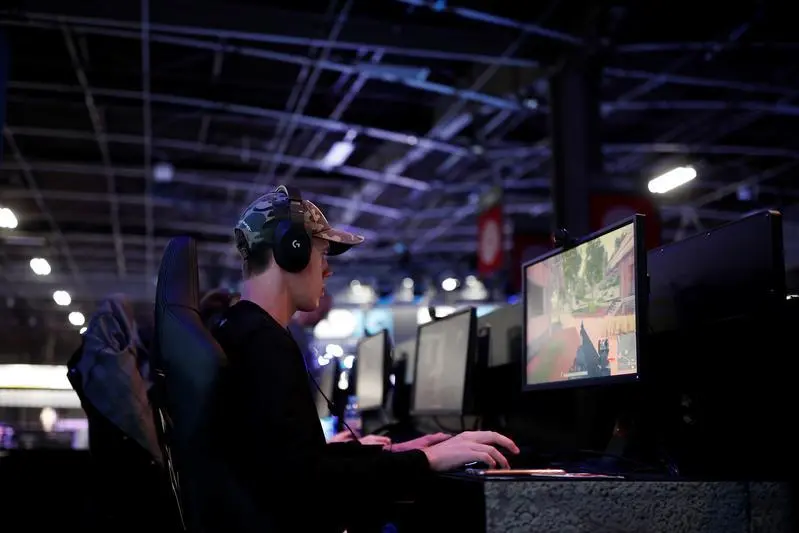PHOTO
AMMAN — The Telecommunications Regulatory Commission's (TRC) decision to ban the popular online PlayerUnknown's BattleGround (PUBG) game last week has generated a discussion on the decision’s effectiveness, its repercussions and the effects of gaming on young people.
Nour Khrais, founder and CEO of mobile game developer Maysalward, told The Jordan Times on Tuesday that the TRC ban did not completely stop people from playing the game, as they can easily download virtual private network (VPN) apps to regain access to the game.
In remarks to The Jordan Times earlier this week, the TRC said that its decision was in line with the commission’s duty to protect users as well as with the Telecommunications Law, alleging that the game has been proven to “promote violence, isolation and self-centredness”.
However, Khrais pointed out that video games similar to PUBG have existed for a long time.
"Had it been said that the voice chat in the game cannot be supervised and thus people abuse it to commit illegal activities, then I would have supported it," Khrais said, adding that if the reason was economic or to impose a tax to play the game, "it would have been okay too, since other countries have done that already".
The issue is the game’s content rating on official app stores, which tell people what age segment a game is suitable for, Khrais said, adding that it is a parent’s responsibility to monitor their children’s access to a store when they give them a phone.
Therefore, if the justification for banning PUBG is true, then the TRC should have banned similar games as well, he said.
"The biggest issue really is that the decision was taken without consulting with game-making or tech companies, and what should have been done is sitting with parents, psychologists, sociologist and other experts who can actually study the game and its effects to come up with a clearer decision," he added.
On the game’s psychological effects, psychiatry and addiction specialist Maen Abki told The Jordan Times on Tuesday that certain video games in general can trigger addictive and violent tendencies.
PUBG allows people to play in groups using voice chat, which makes it more addictive than other games, especially since people nowadays cannot live without mobiles and computers.
Addiction means losing control and prioritising something over all else, Abki said, explaining that if someone is addicted to the game, they could uncontrollably spend an entire night gaming without caring for the job or class they have to wake up for next morning, "which is not a normal way of having fun".
"The American Academy of Paediatrics, for example, set certain hours for using technologies like iPads and mobile phones, and children under two years of age are not even allowed to use those," Abki said, noting that "this is a serious matter that should not be taken lightly" and parents need to be firm in dealing with it.
The fact that people can still play using VPNs is an indication of how addictive the game can be, the specialist said, adding that some people have required hospitalisation to be separated from technology and social media in general.
"Even if children throw a tantrum because the parents did not allow them to play, especially when they play too much, they should ignore those tantrums and reinforce only the behaviour that leads children to overcome their addiction," he said.
The specialist added that addictions to gaming can be more dangerous than drugs, citing easier access to the digital world than to actual drugs.
Not only do violent games in general trigger violent tendencies in children, the withdrawal symptoms could make them turn violent as well, Abki said, stressing how important it is for parents or guardians to be aware of the risks themselves.
Hussein Alkhozahe, a professor of sociology, told The Jordan Times on Tuesday that winning a match in PUBG makes players feel as if they have achieved something and glorifies violence and killing. "This is a waste of time, especially for young people who have lots of free time on their hands, like unemployed individuals."
The World Health Organisation (WHO) has warned people of the dangers of violent games as well, according to Alkhozahe.
On the WHO's website, gaming disorder is defined as a pattern of behaviour involving “digital-gaming” or “video-gaming” characterised by impaired control over gaming, increased priority given to gaming over other activities to the extent that gaming takes precedence over other interests and daily activities, as well as the continuation or escalation of gaming despite the occurrence of negative consequences.
It adds that for gaming disorders to be diagnosed, the behaviour pattern must be of sufficient severity to result in significant impairment of personal, familial, social, educational, occupational or other important areas of daily life and would normally have been evident for at least 12 months.
© Copyright The Jordan Times. All rights reserved. Provided by SyndiGate Media Inc. (Syndigate.info).





















